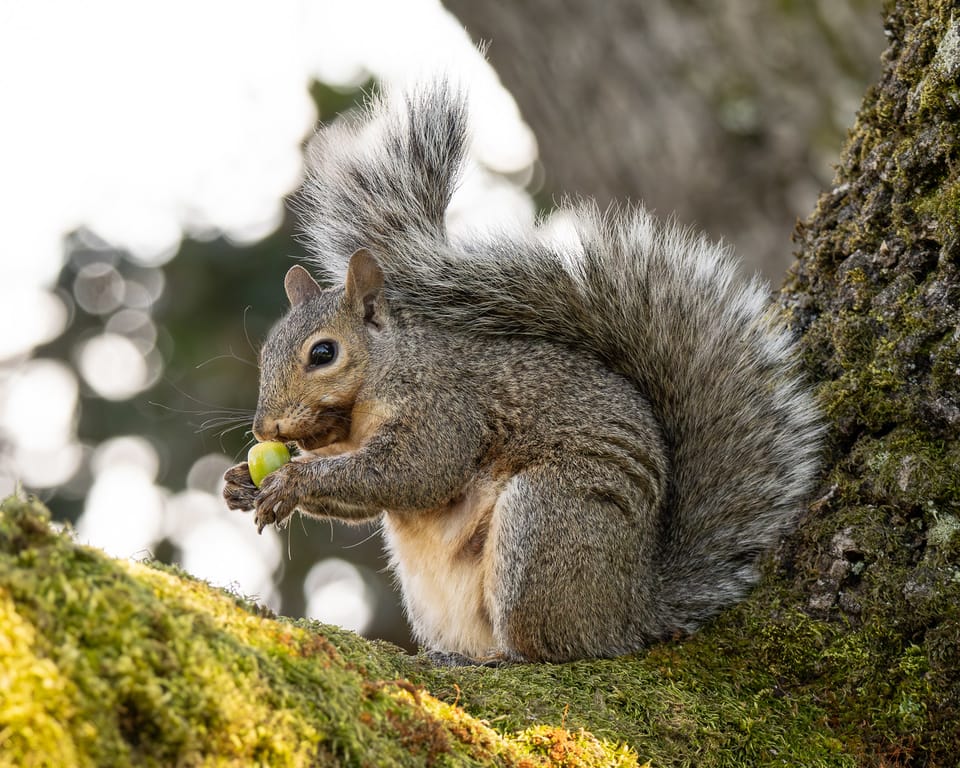EcoWest News, November 19, 2024

Welcome to EcoWest News, a weekly round-up of news and resources that you can put to use in addressing environmental issues and protecting the wild in your community.
Across the West
WSÁNEĆ hereditary chiefs from four nations are calling for an immediate halt to commercial herring fishing to allow the populations to recover. [The Discourse]
A university student used giant puppets and community workshops to draw attention to a hidden waterway in Kelowna. [UBC Okanagan]
Why would a municipality hold a referendum on a project located in another municipal district? Because a mine operator and a premier are determined to open a coal mine on Alberta’s Grassy Mountain. [The Tyee]
Residents and cottagers on the shores of Lake Winnipeg are asking the government to address environmental and infrastructure concerns from peat harvesting in the area. [The Narwhal]
Native Seed Producers of Canada is a working group of farmers dedicated to strengthening Canada's native seed supply and supporting ecological restoration efforts. Members include Skinner Native Seeds (MB), Blazing Star Wildflower Seed Company (SK), and Satinflower Nurseries (BC).
Across Canada
Miitigoog Limited Partnership, a joint venture between Weyerhaeuser, eight Treaty 3 First Nations, and other industry stakeholders, offers a blueprint for centring Indigenous values in forest management. [The Walrus]
Around the World
Transitioning to EVs and renewable energy requires a huge amount of concrete and minerals. Is it a price worth paying? [Anthropocene]
Nitrous oxide emissions, which mostly come from agricultural fertilizers, must be lowered as they accelerate temperature rise and deplete the ozone level. [Inside Climate News]
The carbon footprint of green hydrogen depends on the source of its electricity and transportation. [Hakai]
A study has found electric grids powered by renewables like wind and solar energy are less vulnerable to blackouts [Anthropocene], while gas plants are not as reliable as we think [Union of Concerned Scientists].
A look at the challenges facing companies trying to establish a circular economy (reduce, reuse, recycle, and recover). [The Conversation]
Making a Difference
Unlike demolition, deconstruction rescues valuable materials, ready to be reused or recycled. [CBC]
Renewable diesel made from used cooking oil reduces waste and results in fewer greenhouse gas emissions than those made from new vegetable oils. It could even work on a small scale such as a farm. [Anthropocene]
A rum distillery owned by an NGO donates all the profits to support conservation projects on the island of Dominica. [Hakai]
DIY
What kind of toothbrush is the most environmentally sustainable – plastic, bamboo, or electric? The answer may surprise you. [BBC]
Nature’s Wonders
A collection of over 40,000 aspens in rural Utah is the world’s largest single organism, having all descended from a single seedling. It may also be the world’s oldest living organism. [Gizmodo]
Observing earwigs is fascinating – just ask the scientists who are studying their amorous adventures and parenting skills. [Knowable]
Photo credit: https://www.flickr.com/photos/apmckinlay/54022458569
EcoFriendly West informs and encourages initiatives that support Western Canada’s natural environment through its online publication and the Nature Companion website/app. Like us on Facebook, follow us on BlueSky, X, and Mastodon, or subscribe by email.

Member discussion